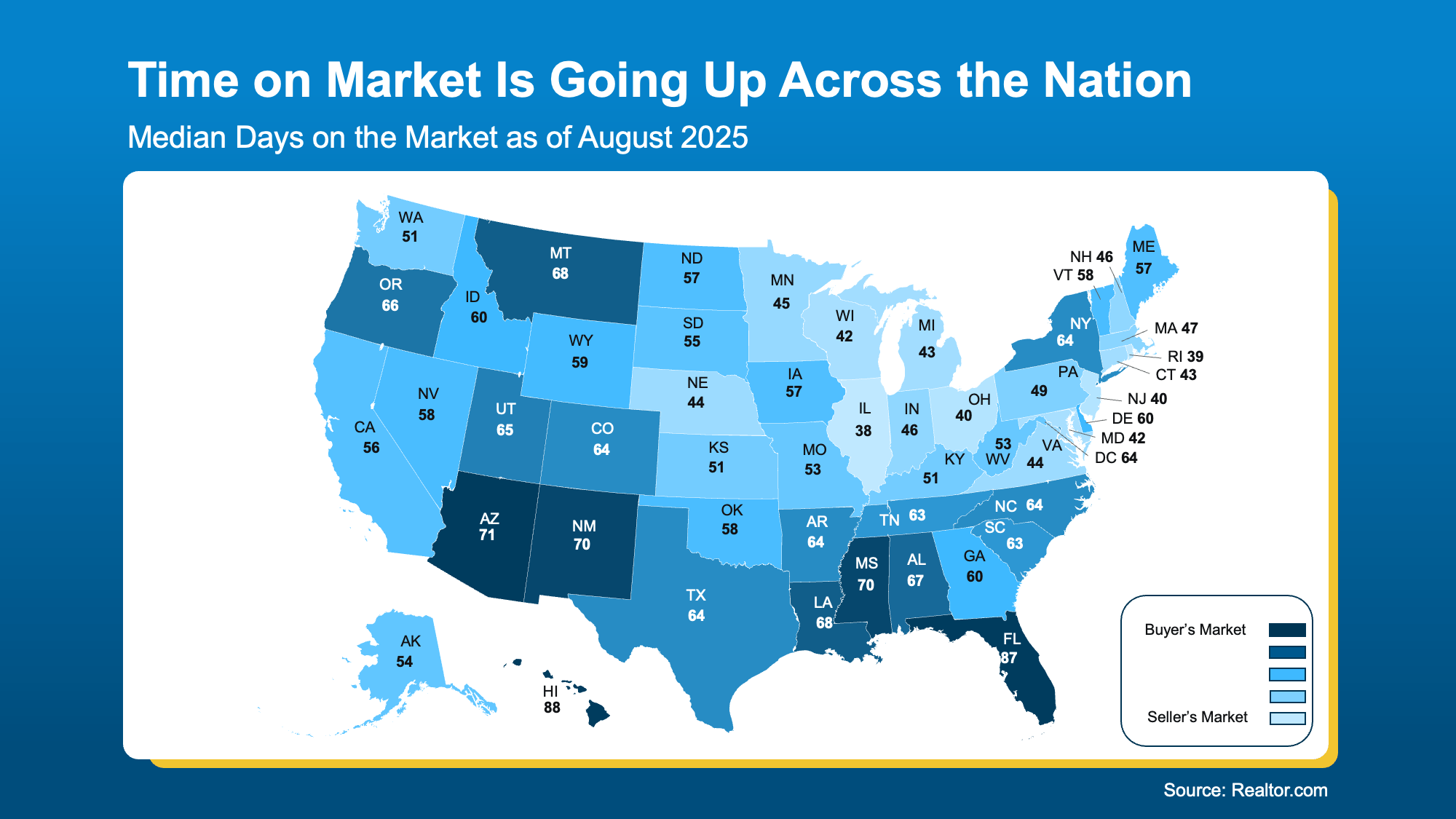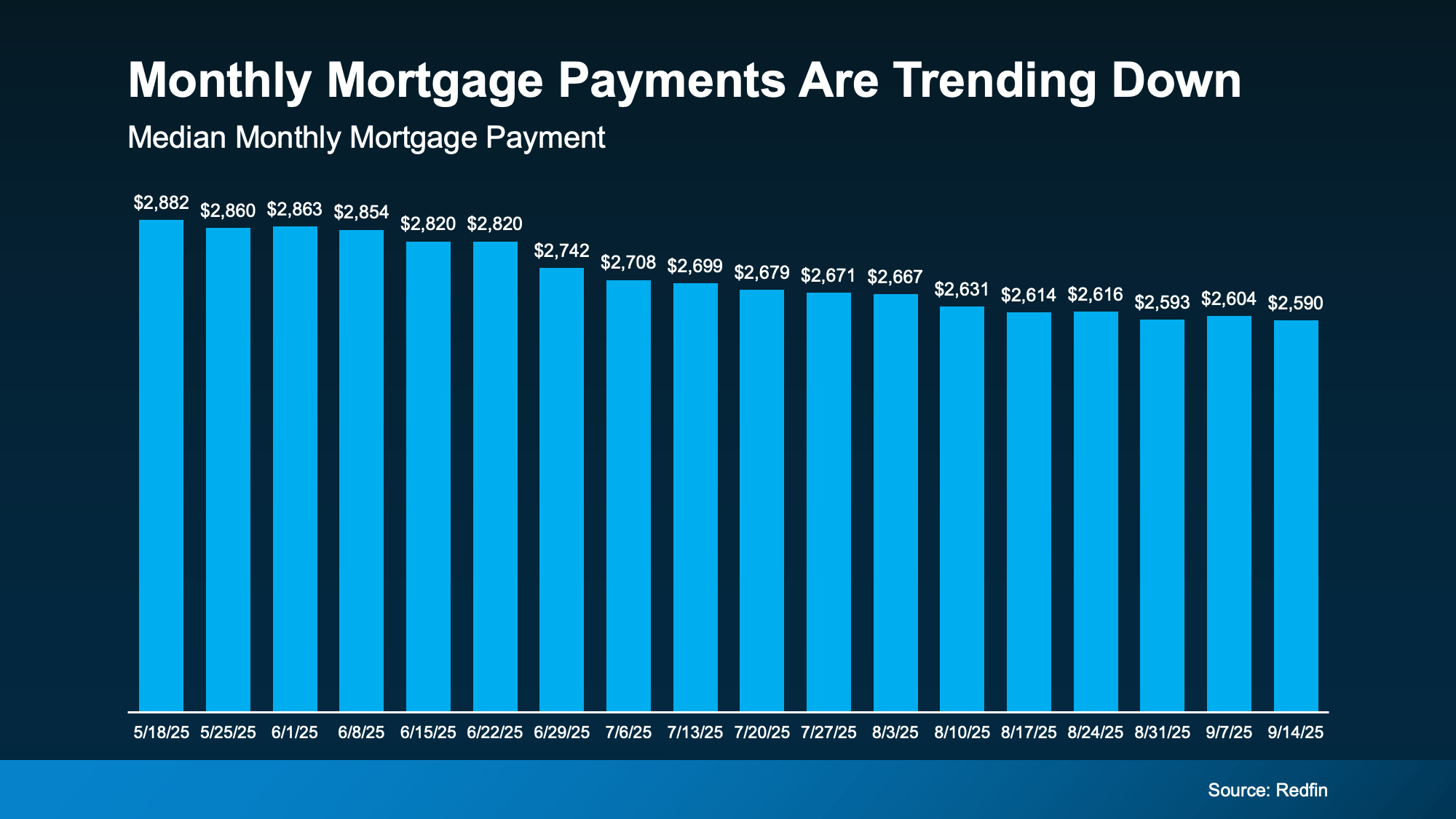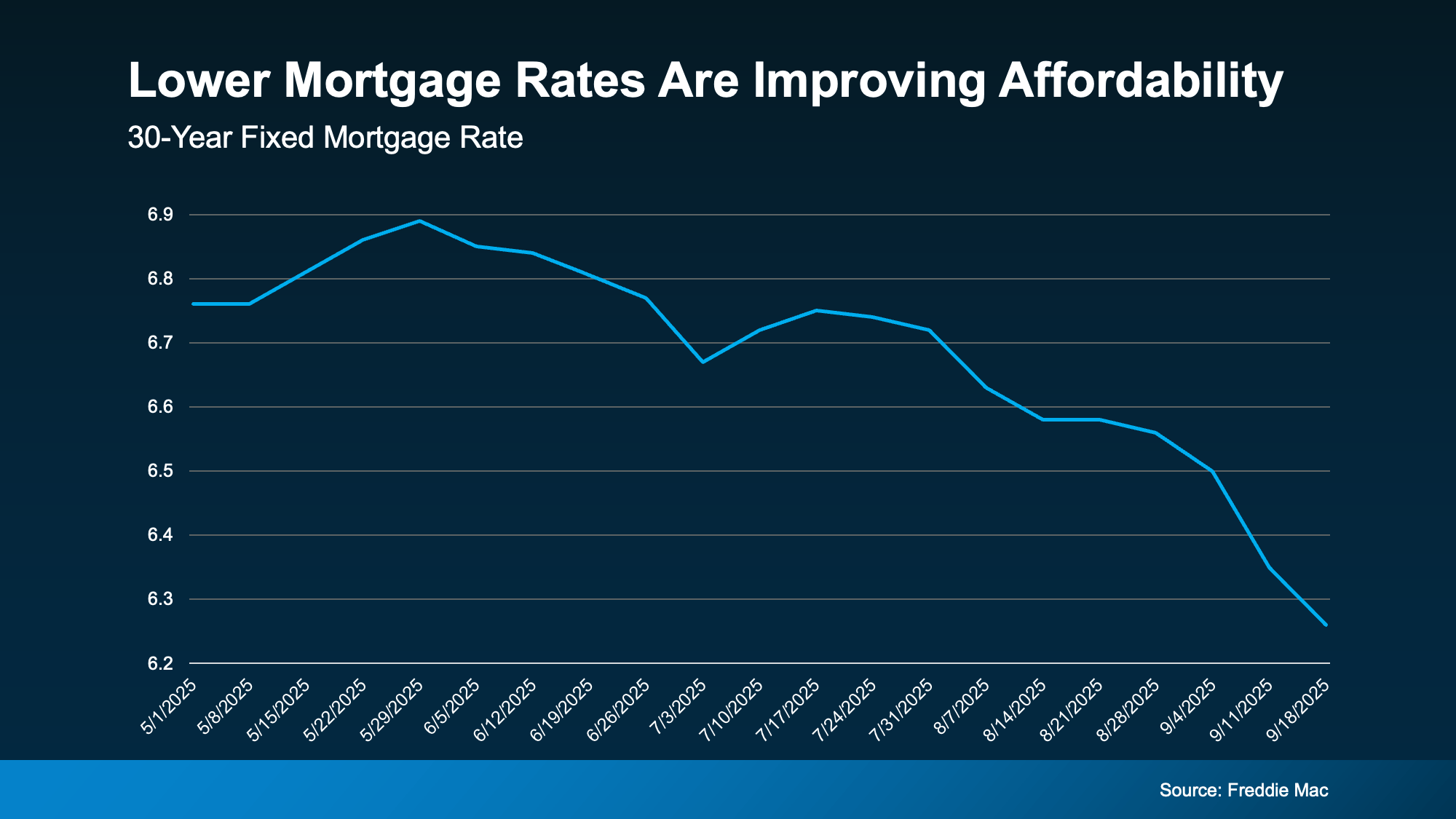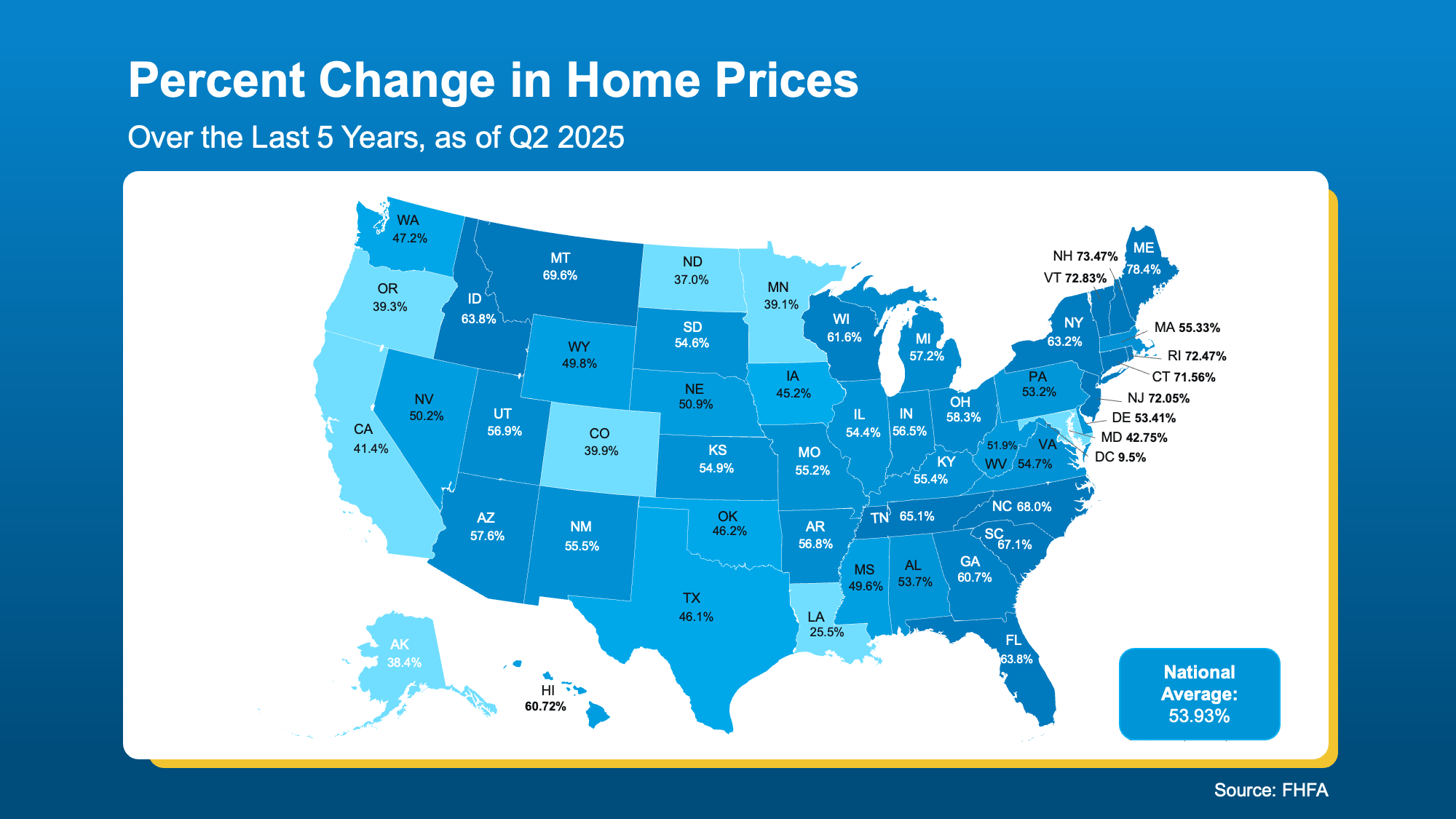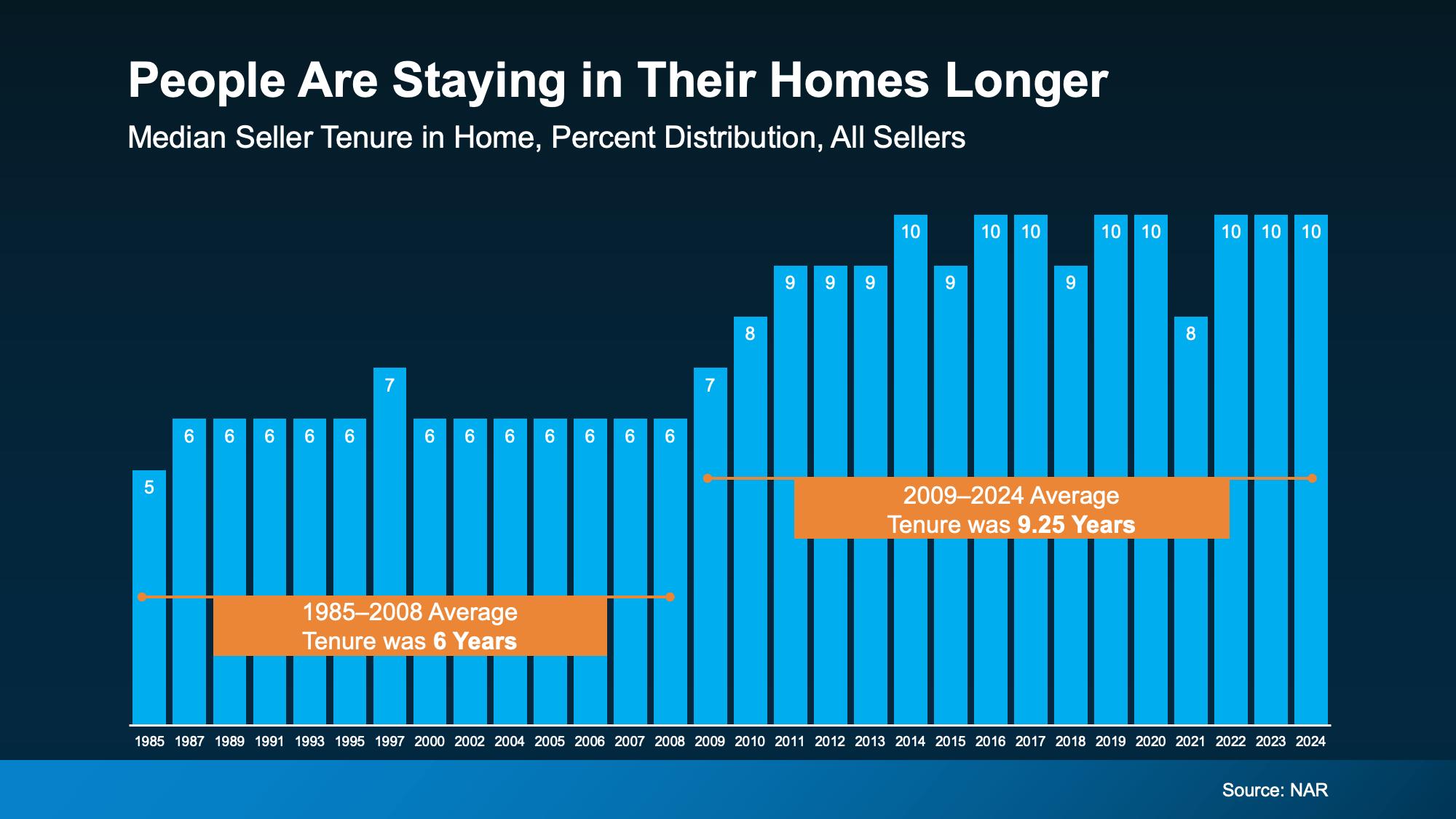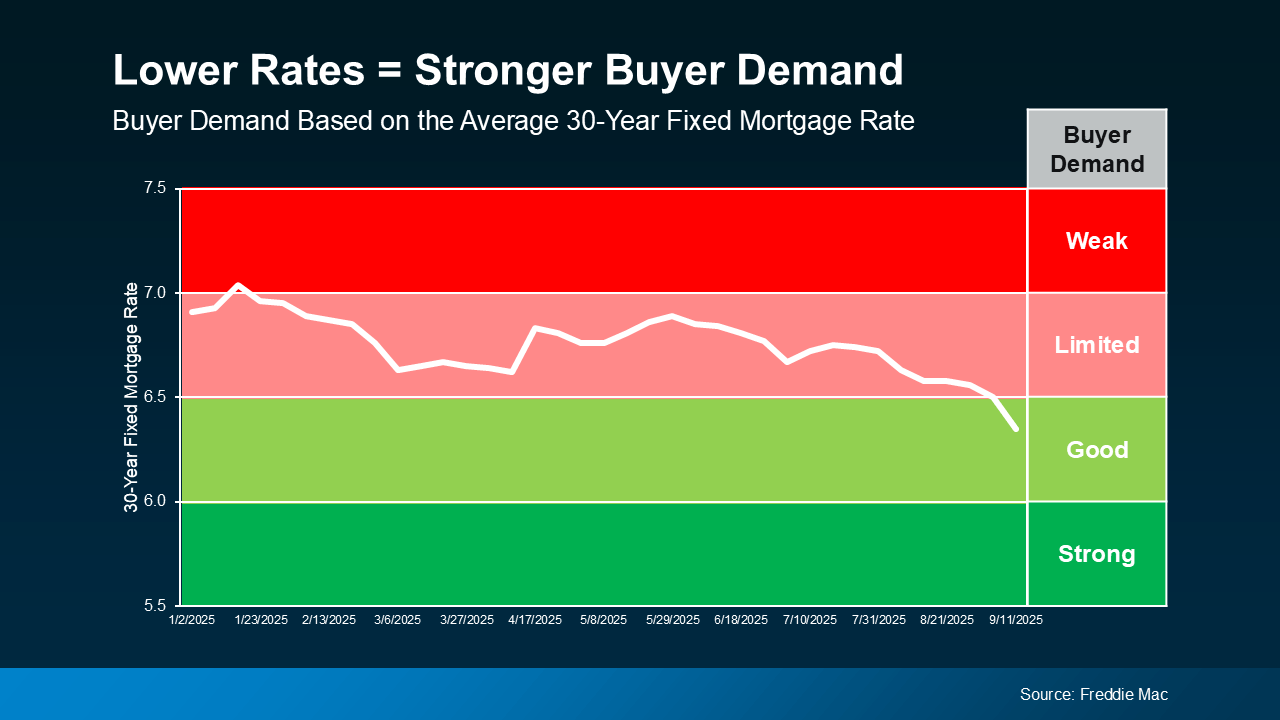
A recent survey from Bank of America asked would-be homebuyers what would help them feel better about making a move, and it’s no surprise the answers have a clear theme. They want affordability to improve, specifically prices and rates (see below):
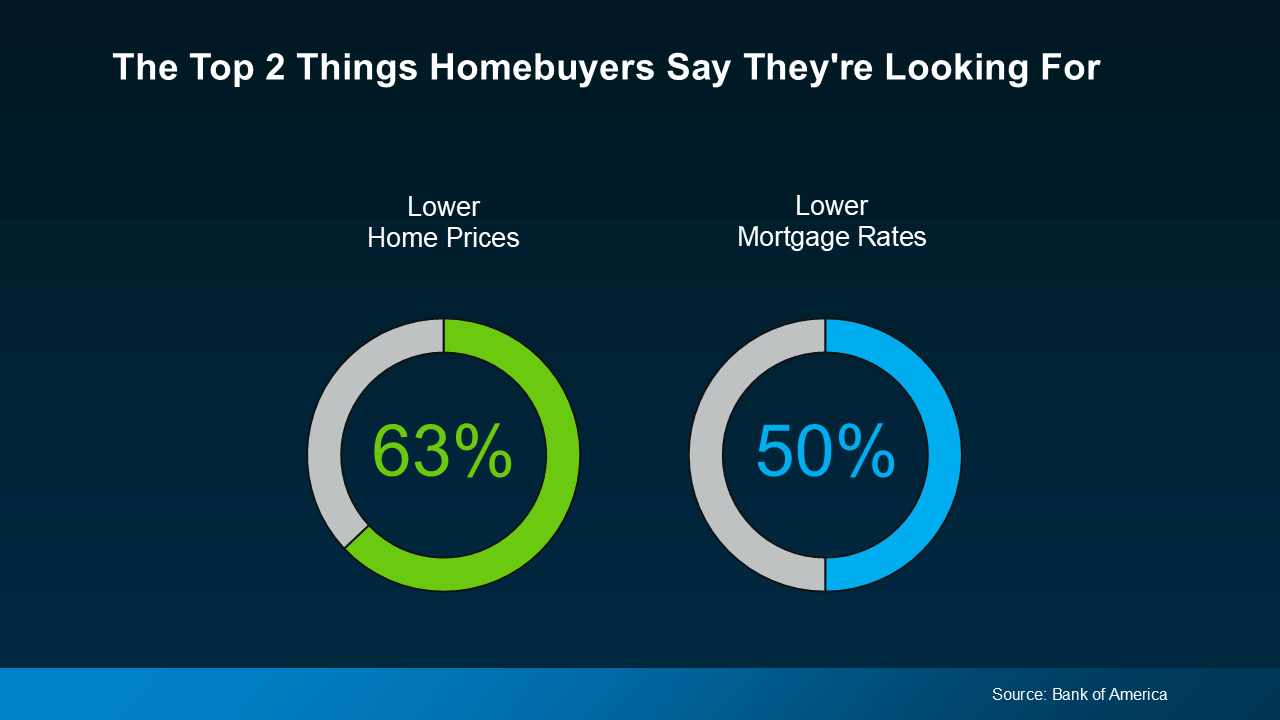 Here’s the good news. While the broader economy may still feel uncertain, there are signs that the housing market is showing some changes in both of those areas. Let’s break it down so you know what you’re working with.
Here’s the good news. While the broader economy may still feel uncertain, there are signs that the housing market is showing some changes in both of those areas. Let’s break it down so you know what you’re working with.
Prices Are Moderating
Over the past few years, home prices have climbed rapidly, sometimes so quickly that it has left many buyers feeling shut out. But today, that pace has slowed down. For comparison, prices rose by 20% from 2020 to 2021 in a 12-month period. Now? Nationally, experts are projecting single-digit increases this year – a much more normal pace.
That’s a sharp contrast to the rapid growth we saw just a few short years ago. Just remember that price trends vary by area. In some markets, prices are expected to continue rising, while others are anticipated to experience slight declines.
Prices aren’t crashing, but they are moderating. For buyers, the slowdown makes buying a home a bit less intimidating. It’s easier to plan your budget when home values are moving at a much slower pace.
Mortgage Rates Are Easing
At the same time, rates have come down from their recent highs. And that’s taken some pressure off would-be homebuyers. As Lisa Sturtevant, Chief Economist at Bright MLS, says:
“Slower price growth coupled with a slight drop in mortgage rates will improve affordability and create a window for some buyers to get into the market.”
Even a slight drop in mortgage rates can mean a big difference in what you pay each month in your future mortgage payment. Just remember, while rates have come down a bit lately, they’re going to experience some volatility. So don’t get too caught up in the ups and downs.
The overall trend in the year ahead is that rates are expected to remain in the low to mid-6s, which is significantly better than where they were just a few short months ago. They may even drop further, depending on the direction the economy takes from here.
Why This Matters
Although confidence in the economy may be low, the housing market is showing signs of adjustment. Prices are moderating, and rates have come down from their highs.
For you, that may not solve affordability challenges altogether, but it does mean conditions look a little different than they did earlier this year. And those shifts could help you re-engage as we move into next year.
Bottom Line
The top two concerns for buyers are seeing some movement. Prices are moderating. Rates are easing. And both trends could persist into 2026.
If you’re considering a move, let’s connect and walk you through what’s happening in our area – and what it means for your plans.

 Facebook
Facebook
 X
X
 Pinterest
Pinterest
 Copy Link
Copy Link

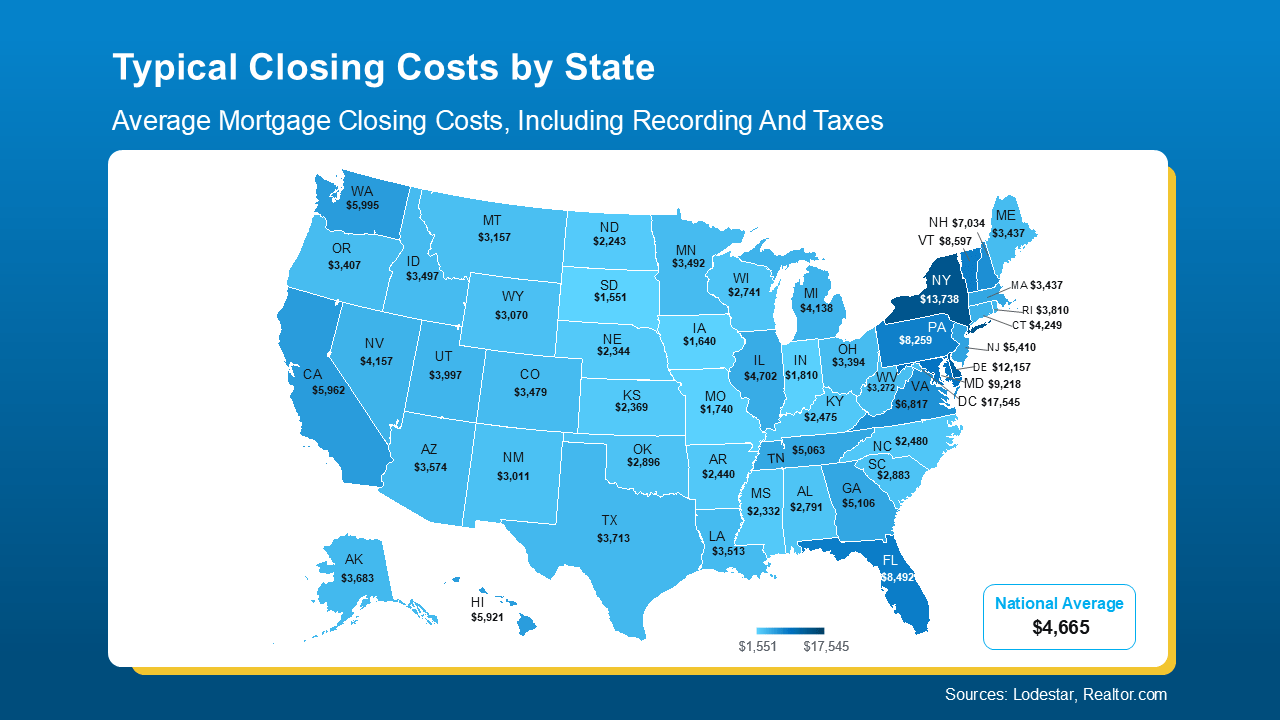 As the map shows, in some states, typical closing costs are roughly $ 1,000-$3,000. In a few places, they can be closer to $10-15K. That’s a big swing, especially if you’re buying your first home. And that’s why knowing what to expect matters.
As the map shows, in some states, typical closing costs are roughly $ 1,000-$3,000. In a few places, they can be closer to $10-15K. That’s a big swing, especially if you’re buying your first home. And that’s why knowing what to expect matters.
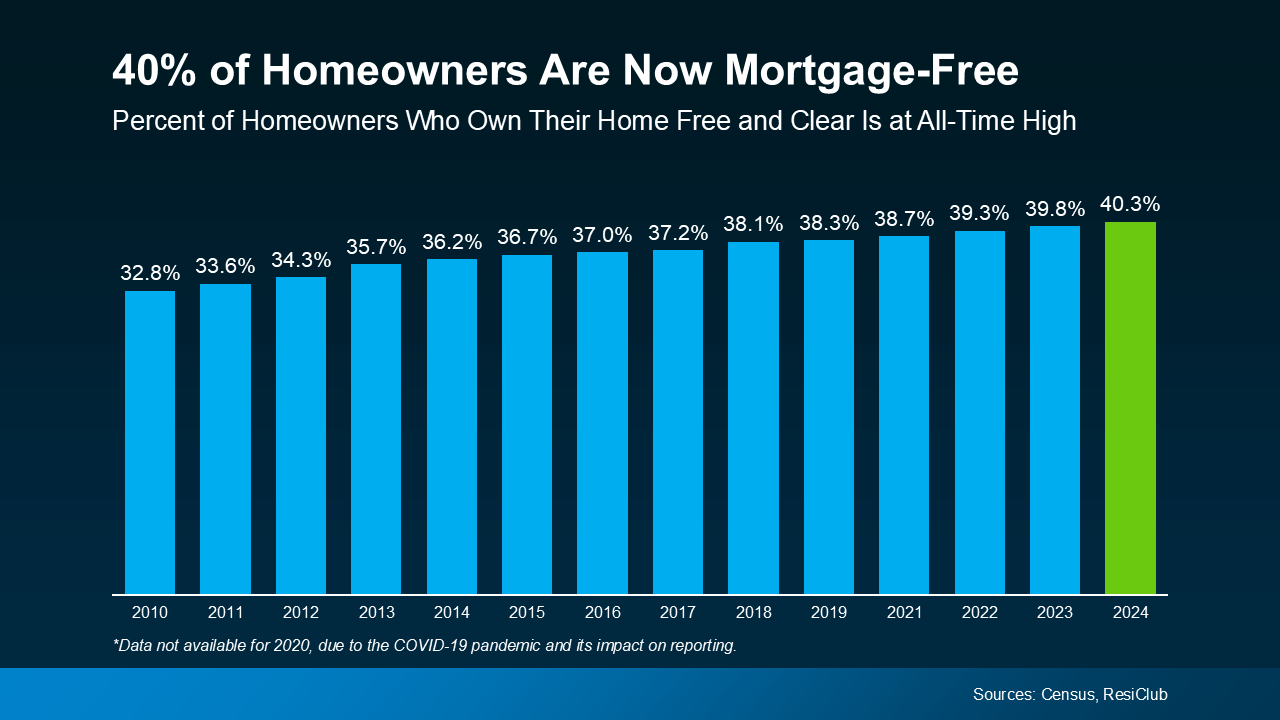
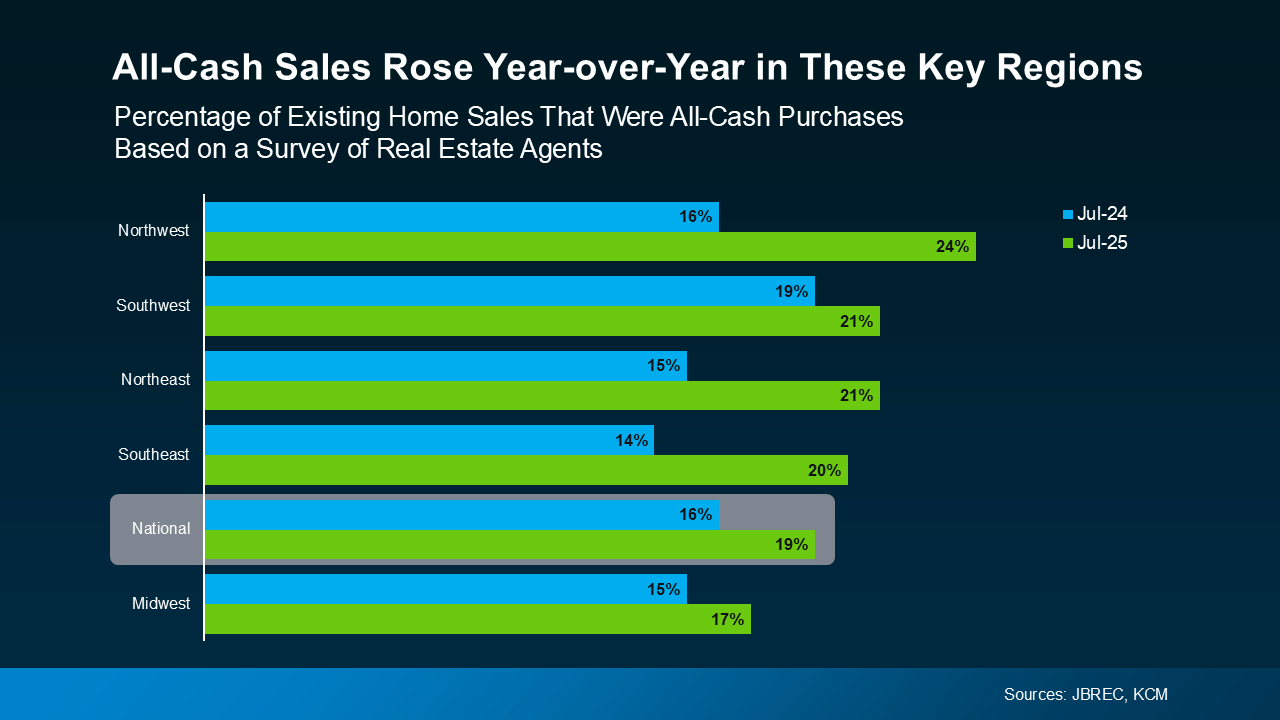

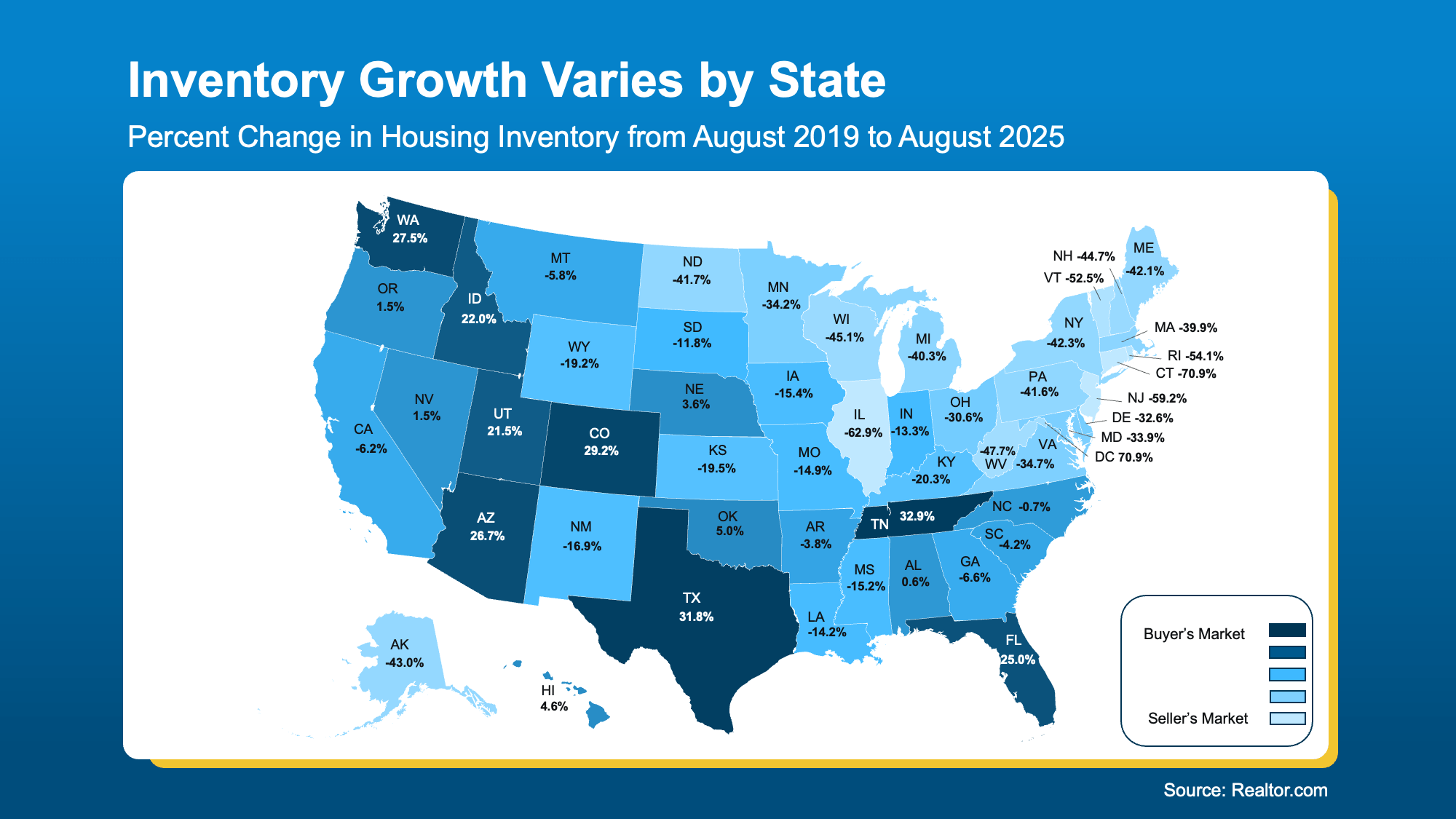 Prices Follow Inventory
Prices Follow Inventory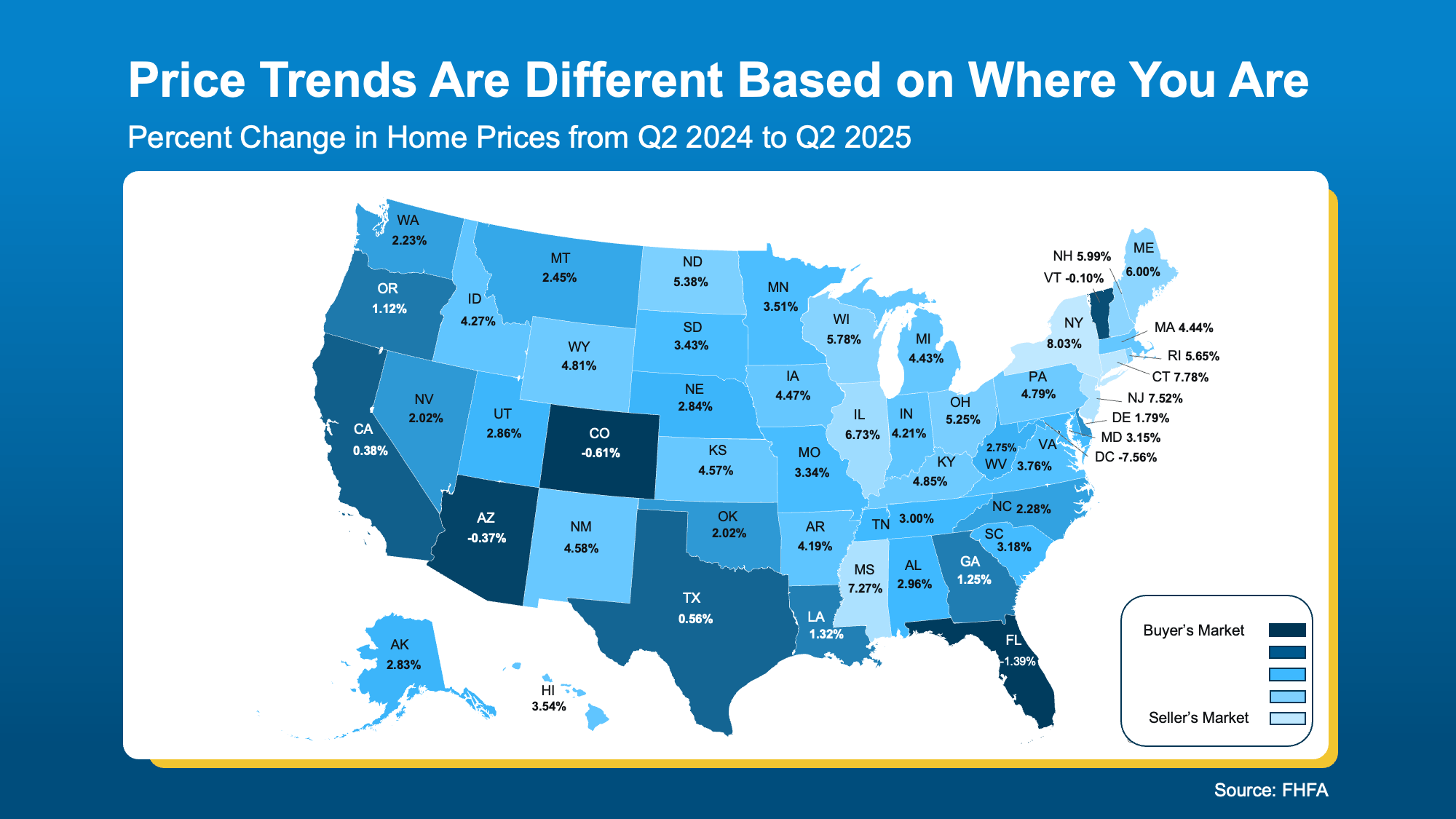 Time on Market Tells the Same Story
Time on Market Tells the Same Story